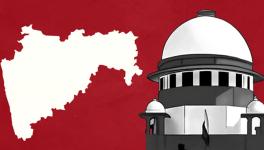Modi’s Forward Quota is an Insult To Dr Ambedkar
Image for representational use only; Image Courtesy : Indian Culture Forum
Time will tell if Prime Minister Narendra Modi’s decision to extend 10% reservation to the economically backward class is a ‘masterstroke’ or a ‘jumla’ (a hollow statement). But the decision would have certainly sent the Sangh Parivar on cloud nine. The Rashtriya Swayamsevak Sangh (RSS) has consistently opposed caste-based reservation as penned in the Constitution, and advocated reservation based on economic backwardness. Modi’s step is in that direction. Until today, RSS has tacitly, and sometimes overtly, hated the Scheduled Castes, Scheduled Tribes and Other Backward Classes (OBCs), even calling them ‘Sarkari brahmins’. Now that Modi has extended this carrot, the mythical argument of merit might well be behind us.
Needless to say, the promise of 10% reservation to the economically backward class is a political ploy. Modi is currently in a quagmire, with dwindling popularity, rising farm distress and intensifying unemployment. The economy is suffering and the so-called gau rakshaks(cow vigilantes) continue to run amok.
Modi has not been able to fulfil the promises he made in 2014, and the noises around the Rafale deal have drowned out the calls for Ram Mandir. ‘Upper caste’ reservation is just a panicky tactic to change the narrative. Even though it includes Muslims and Christians, Modi ministers continue to advertise the reservation for economically backward as a win for the baniyas, bhumihars, rajputs and, most importantly, brahmins.
Modi is basically reading from former Prime Minister VP Singh’s playbook of 1989, who had come up with the Mandal Commission 29 years ago. Singh expected OBCs to be alienated from the Ram Mandir movement after the introduction of Mandal Commission. But that didn’t happen. It didn’t even help Singh in the next elections. However, it had a wide-ranging socio-political impact after its enforcement in 1992. Modi’s forward quota wouldn’t be triggering that impact either.
According to Sanjay Kumar of Centre for Study of Developing Societies (CSDS), the upper caste votes in 2014 had gone to Modi by a significant margin, to the extent that the BJP couldn’t hope to add more in 2019. This lollipop can only go as far as curbing anti-incumbency and keeping the disillusioned upper caste vote intact. On the other side, it is likely to trigger a reverse consolidation of OBC and SC/ST voters against Bharatiya Janata Party (BJP). In fact, dalit youth leader Jignesh Mewani has asked if this is a RSS conspiracy to eat into their reservations.
Even former Prime Minister Narasimha Rao had attempted to pull off this stunt to quell the atmosphere after Mandal, but it was struck down by a nine-member bench of the Supreme Court in the historic Indira Sawhney Vs. Union of India case. This verdict explains at length why it isn’t constitutionally possible to give reservation on economic basis.
But Modi’s trusted minister Arun Jaitley says the government is well aware of the drawbacks in Rao’s decision. His government’s attempt to provide reservations on economic basis has followed an amendment in Articles 15(4) and 16(4) of the Constitution. Something that Rao didn’t do. Yet, law experts believe it wouldn’t stand scrutiny in the apex court.
The architects of our Constitution had made the reasons behind caste-based reservation amply clear. Babasaheb Ambedkar had said it was not a poverty alleviation scheme but a special opportunity for those who have been oppressed for centuries. Jawaharlal Nehru had endorsed it as well.
The Constituent Assembly refused to include ‘economic backwardness’ along with ‘social and educational backwardness’ in final draft after detailed deliberations. This doesn’t mean they lacked empathy for the poor. They made other provisions for the economically backward class. But Modi is essentially defying the core of Ambedkar’s original idea of reservation. Some may say this is an insult to Ambedkar. On one hand, RSS tries to appropriate Ambedkar, and on other, they reject his basic thinking!
Except for Rashtriya Janata Dal and the two Tamil parties -- DMK and AIADMK -- not many political parties have had the gall to call out Modi on this, exposing their hypocrisy. Congress, Nationalist Congress Party, Trinamool Congress and the Biju Janata Dal criticised the decision but didn’t expose the government for tampering with the Constitution and voted for the Bill. Except for Prakash Ambedkar, no dalit leader, including Mayawati, lived up to Babasaheb’s legacy. But an amendment that goes against the spirit of the Constitution can be reviewed by the Supreme Court. The 1973 case of Keshawananda Bharati is clear on that.
But Modi need not worry about it. Even though the Lok Sabha and Rajya Sabha have approved the Bill, it needs to pass through 50% of all the state Assemblies. It would then be signed by the President and become a law. In the meantime, the general elections of 2019 would have concluded. So, even if someone knocks the doors of the Supreme Court, Modi doesn’t need to worry. The case wouldn’t be concluded immediately either.
However, the same Modi as Chief Minister of Gujarat kept saying India needs jobs, not reservations. He had been opposed to increasing the cap of 50% reservation. Today, his initiative has made it 59.5%. The Supreme Court has yet to pronounce its verdict on the Tamil Nadu quota case. Until that comes through, this quota would remain ambiguous.
On top of that, the criteria for being economically backward are controversial, to the say the least. A home under 1,000 square feet, annual household income under Rs 8 lakh or farmland under five hectares would mean most Indians fall in the category. How did the government arrive at those numbers, and the 10% figure, still remains a mystery.
The biggest irony, however, is that there are no jobs. More than 10 lakh jobs from public sector have vanished under Modi. When the demand is for 10 lakh government jobs, only 45,000 of them are available annually. If Modi genuinely wanted to take a revolutionary step, he should have extended this reservation in the private sector. But that would require guts.
TMC MP Derek O’Brien, perhaps, had the most pertinent comment on Modi’s new lollipop. He said in the Rajya Sabha, “Modi has initiated several programmes till date. Stand up India, Start up India, Make in India and so on. This is a new programme. Cheat India.”
Sensible citizens wouldn't disagree with Derek.
Get the latest reports & analysis with people's perspective on Protests, movements & deep analytical videos, discussions of the current affairs in your Telegram app. Subscribe to NewsClick's Telegram channel & get Real-Time updates on stories, as they get published on our website.
























